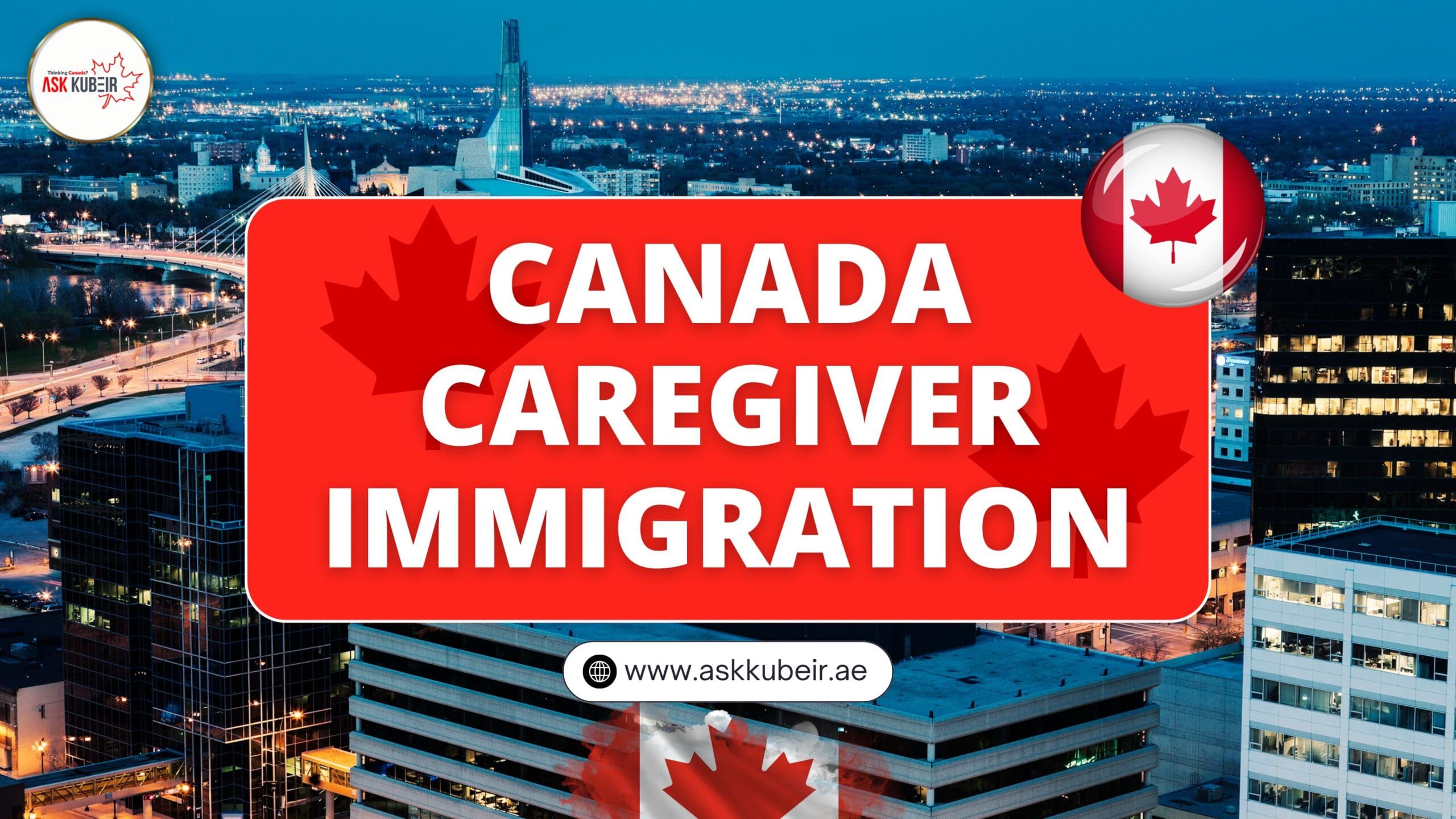
Canada offers a dedicated pathway for caregivers who wish to work, live, and ultimately become permanent residents in Canada. This guide provides a comprehensive overview of Canada caregiver immigration programs, outlining eligibility requirements, application steps, and program benefits. Designed to support caregivers and their employers, this article aims to make the Canada caregiver immigration process clear and straightforward.
Overview of Canada’s Caregiver Immigration Programs
Canada caregiver immigration programs enable qualified foreign caregivers, such as nannies and home support workers, to work in Canada and progress toward permanent residency. The two main immigration programs catering to caregivers are:
- Home Child Care Provider Pilot Program (HCCP)
- Home Support Worker Pilot Program (HSWP)
Introduced in 2019, these programs replaced previous caregiver pathways, each with specific eligibility criteria based on occupation and skill requirements. Both the HCCP and HSWP offer significant advantages, enabling caregivers to build a stable life in Canada while contributing their valuable skills.
Home Child Care Provider Pilot Program (HCCP)
The Home Child Care Provider Pilot Program is tailored for caregivers specializing in childcare who possess relevant experience and qualifications. Applicants under this Canada caregiver immigration program apply through the National Occupational Classification (NOC) TEER Code 44100, covering roles such as:
- Nannies
- Babysitters
- Parents’ helpers
- Private home childcare providers
- Live-in caregivers
Eligibility Requirements for HCCP:
To qualify for the Home Child Care Provider Pilot, applicants must meet the following criteria:
- Education: Completion of at least one year of post-secondary education (in Canada or abroad).
- Language Proficiency: A minimum Canadian Language Benchmark (CLB) score of 5 in English.
- Work Experience: At least one year of experience under NOC TEER Code 44100.
- Job Offer: A valid job offer in Canada for a child caregiver role.
- Application Limit: Each year, the HCCP program accepts a maximum of 2,750 applications, with intake beginning on January 1.
Home Support Worker Pilot Program (HSWP)
The Home Support Worker Pilot Program allows foreign caregivers to provide essential assistance to elderly individuals, people with disabilities, and others needing personal support. Applicants need experience under NOC TEER Code 44101, which includes roles such as:
- Family caregivers
- Housekeepers
- Attendants for individuals with disabilities
- Live-in caregivers for the elderly
- Personal care aides
Eligibility Requirements for HSWP:
Applicants for the Home Support Worker Pilot must meet these conditions:
- Education: Completion of at least one year of post-secondary education.
- Language Proficiency: A minimum CLB score of 5 in English.
- Work Experience: At least one year of experience in NOC TEER Code 44101.
- Job Offer: A valid job offer for a home support worker position in Canada.
- Application Limit: Similar to the HCCP, the HSWP accepts up to 2,750 applications annually, with intake beginning each January.
Steps to Apply for the Canada Caregiver Visa
The Canada caregiver immigration process involves the following five main steps:
- Determine Eligibility for the Correct Program
Choose between the Home Child Care Provider Pilot and the Home Support Worker Pilot based on your experience and professional background. - Submit a Dual Application for a Work Permit and Permanent Residency
Canada’s caregiver programs allow applicants to submit a combined application for both a work permit and permanent residency, providing a clear path to PR status while fulfilling caregiving duties. - Obtain a Temporary Occupation-Restricted Work Permit
If eligible, applicants receive a temporary occupation-restricted open work permit, enabling them to work as caregivers for any employer in Canada. - Gain Required Work Experience
Caregivers must complete 24 months of caregiving experience to qualify for permanent residency, preparing them for long-term caregiving roles in Canada. - Apply for Permanent Residency
Once the required work experience is completed, caregivers can finalize their PR application, securing a stable future in Canada.
Benefits of Canada’s Caregiver Visa Programs
Canada’s caregiver programs provide caregivers and their families with numerous benefits, including:
- No Labour Market Impact Assessment (LMIA): Unlike many other Canadian work permits, caregiver visas do not require an LMIA, streamlining the application process.
- Direct Path to Permanent Residency: Caregivers can apply for permanent residency while working in Canada, creating a clear pathway to a long-term stay.
- Family Sponsorship: Family members of the caregiver can also accompany them to Canada, making this an appealing option for caregivers with families.
Frequently Asked Questions
- How long does it take to process a caregiver visa application?
The average processing time is 6 to 8 months, though it may vary depending on application volumes and specific case factors. - Are there caps on the number of caregiver visa applications?
Yes, both the HCCP and HSWP have an annual cap of 2,750 applications each. It’s advisable to apply early, as these spots can fill quickly. - Must caregivers live with their employer?
No, there is no requirement for caregivers to live with their employer under either the HCCP or HSWP, allowing caregivers to choose their living arrangements.
How We Can Help with Your Canada Caregiver Immigration Application
The Canada caregiver immigration process can be complex, but our team is here to provide comprehensive assistance tailored to each applicant’s specific needs, including:
- Eligibility Assessment: We conduct a thorough assessment to ensure applicants meet the HCCP or HSWP requirements.
- Application Guidance: From document preparation to submission, we offer full support to streamline the application process.
- Language Training: We provide coaching to help applicants achieve the required CLB 5 in English.
- Job Assistance: We help caregivers find relevant employment across Canada to meet the required work experience.
Canada Caregiver Visa Process Summary
| Step | Description |
|---|---|
| A | Start: Determine Eligibility |
| B | Choose HCCP or HSWP Program |
| C | Submit Work Permit & PR Application |
| D | Receive Temporary Work Permit |
| E | Gain 24 Months Work Experience |
| F | Apply for Permanent Residency |
| G | PR Approved: Begin Life in Canada |
Conclusion
Canada’s caregiver immigration programs present a valuable opportunity for skilled caregivers worldwide to build a career and achieve permanent residency. With well-defined pathways like the HCCP and HSWP, Canada caregiver immigration programs allow caregivers to transition from temporary work permits to long-term residency. For caregivers dedicated to providing essential support in childcare or home care, Canada is an ideal destination with a supportive visa framework.
Reach out to us at AsKubeir for expert guidance and personalized support. Let us help you turn your career goals into reality and start your new chapter in Canada with confidence!
CONTACT US!
📞 Call us: 04 526 4646
📲 WhatsApp: wa.me/971529693030
🌐 Website: www.askkubeir.ae





